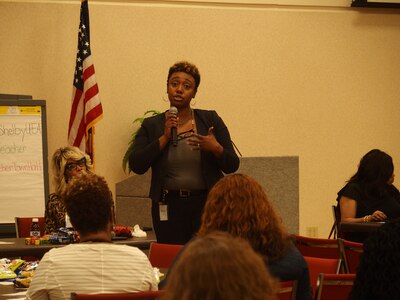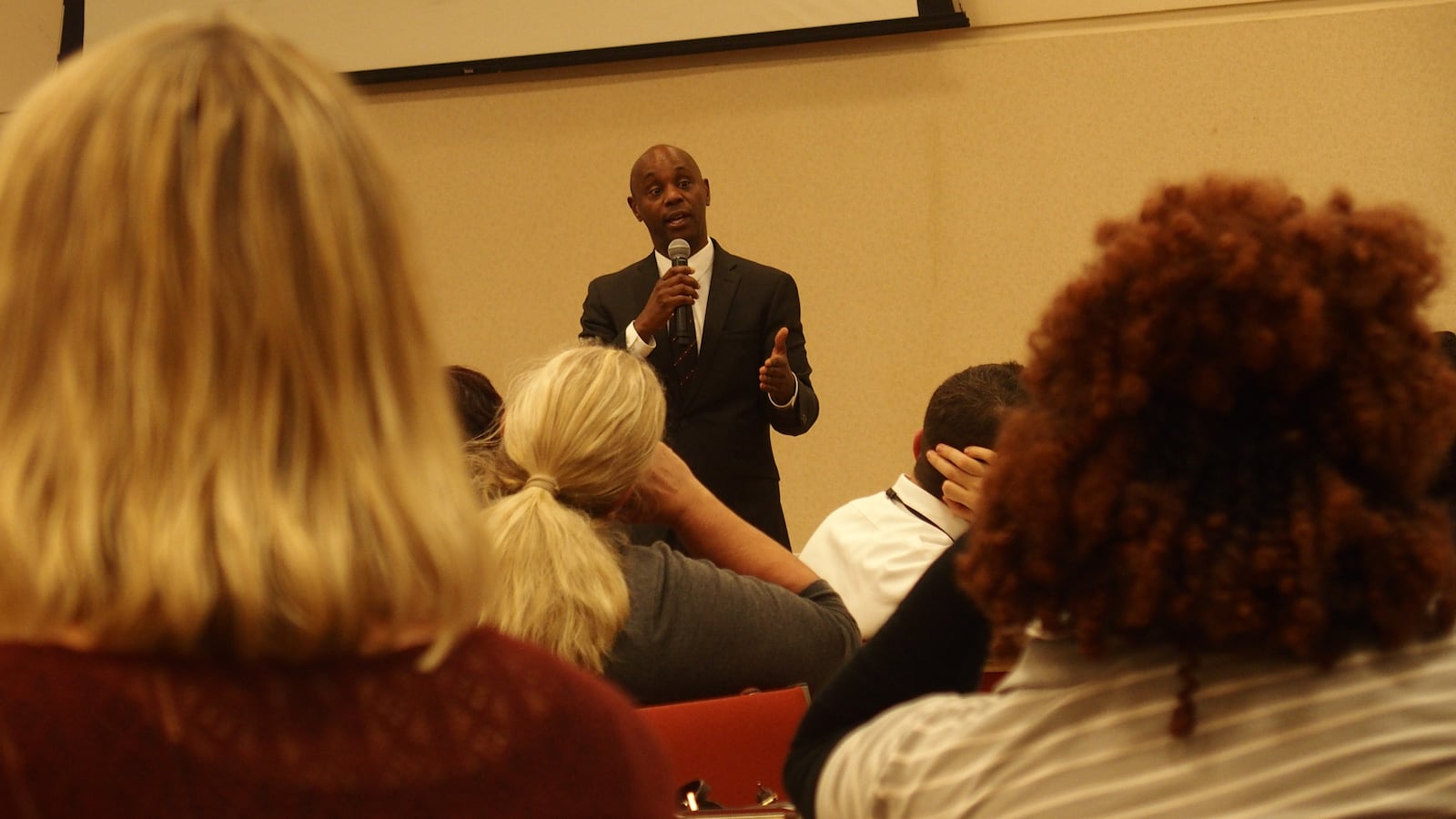The Shelby County Schools superintendent told passionate teachers at a union town hall Monday that they can expect more flexibility in how they teach the district’s newest curriculums.
Superintendent Dorsey Hopson said the teachers who score highest on their evaluations should not feel like they need to read from a script to meet district requirements, although he didn’t have an immediate answer to how that would work.
Teacher frustrations were reaching a boiling point on district curriculums introduced this school year. Although the state requirements have changed several times over the last eight years, this change was particularly bothersome to teachers because they feel they are teaching to a “script.”
“Teachers have to be given the autonomy,” Hopson said. Although he cited the need for the district to have some control as teachers are learning, “at the end of the day, if you’re a level 4 or level 5 teacher, and you know your students, there needs to be some flexibility.”
Vocal teachers at the meeting cited check-ins from central office staff as evidence of the overreach.
“I keep hearing people say it’s supplemental but we have people coming into my room making sure we’re following it to a T,” said Amy Dixon a teacher at Snowden School. “We’re expected to follow it … like a script.”
The 90-minute meeting sponsored by the United Education Association of Shelby County drew a crowd of about 100 people to talk about curriculum and what Hopson called “a culture of fear” throughout the district of making a mistake.
Hopson said his team is still working on how to strike the right balance between creativity and continuity across nearly 150 district-run schools because so many students move during the school year.
He reassured despondent teachers he would come up with a plan to meet the needs of teachers and keep curriculums consistent. He said some continuity is needed across schools because many students move a lot during the school year.
“We know we got to make sure that I’m coming from Binghampton and going over to Whitehaven it’s got to be at least somewhat aligned,” he said. “I wish we were a stable, middle-class, not the poorest city in the country, then we wouldn’t have a lot of these issues.”
Ever since Tennessee’s largest district began phasing in parts of an English curriculum called Expeditionary Learning, teachers have complained of being micromanaged, instead of being able to tailor content for their students. The same goes for the new math curriculum Eureka Math.
The district’s changes are meant to line it up with the state. Tennessee’s new language arts and math standards replaced the Common Core curriculum, but in fact, did not deviate much when the final version was released last fall. This is the third change in eight years to state education requirements.
Still, Shelby County Schools cannot fully switch to the new curriculums until they are approved by the Tennessee State Board of Education. District leaders hope both curriculums, which received high marks from a national group that measures curriculum alignment to Common Core, will be added when textbooks are vetted for the 2019-20 school year.
Some urged educators to not think of the new curriculums as “scripts,” and admitted to poorly communicating the changes to teachers.

“It’s not an expectation that we stand in front of our children and read off a piece of paper,” said Pam Harris-Giles, one of the district’s instructional support directors, who helps coordinate curriculum training and professional development.
Fredricka Vaughn, a teacher at Kirby High School, said that won’t be easy without clear communication of what flexibility will look like for high-performing teachers.
“If you don’t want us to use the word script, then bring back the autonomy,” she said.
Hopson stressed that the state’s largest school district could be a model for public education if everyone can work together to make the new curriculums work.
“It’s going to take work, hard work, everyone aligned from the top, everyone rowing in the same direction.”

